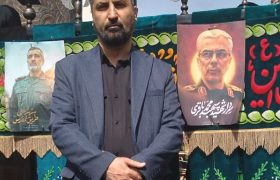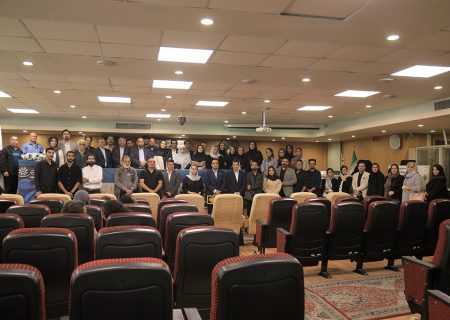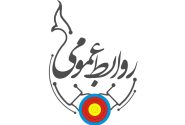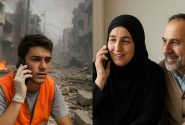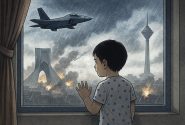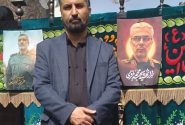نقش و اهمیت گفتوگو در ارتباطات میان فرهنگی و فهم تفاوتهای هویتی
نوع مقاله : مقاله پژوهشی
نویسندگان
- هادی خانیکی ۱
- ابراهیم ترکی هرچگانی ۲
۱ استاد گروه علوم ارتباطات ، دانشکده علوم ارتباطات، دانشگاه علامه طباطبائی، تهران، ایران
۲ دکتری علوم ارتباطات، دانشکده علوم ارتباطات، دانشگاه علامه طباطبائی(نویسنده مسئول)، تهران، ایران
چکیده
در این مقاله تلاش داریم تا به تحلیل و ارزیابی نقش گفتوگو در ارتباطات میانفرهنگی و پیامدهای آن بر صورتبندی هویت بپردازیم. با نشاندادن وضعیت کنونی جهانی و درهمآمیختگی بیش از پیش فرهنگها، نژادها، گروههای قومی و … ، به این موضوع پرداختهایم که هرگونه ارتباطات بین فرهنگی مبتنی بر پذیرش و فهم دیگری و تفاوت، بهضرورت نیازمند گفتوگو با دیگری است. از سوی دیگر رویکردهای چندفرهنگگرایی و همچنین بینفرهنگگرایی به عنوان دو دیدگاه اصلی در زمینه جهانیشدن امروز و اختلاط بیش از پیش فرهنگها مورد توجه قرار گرفته است. در خلال این امر و با استفاده از دیدگاههای دو نظریهپرداز اصلی این حوزه، “بوبر” و “باختین”، نشان دادهایم که گفتوگو ذات و ماهیت هرگونه ارتباط بین انسانها، فرهنگها و گروههای مختلف است و چنین وضعیتی نیازمند فهم عمیقتر از دیگری و جایگاه آن در شکلگیری هویت و چیستی خویشتن خواهد بود. همچنین نشان میدهیم که هویتها، همواره امری رابطهای بوده و در نسبت ما با دیگری است. نسبت با دیگری تنها در گفتوگویی است که از حالت خصمانه به پذیرش تفاوت منجر میشود. اما آنچه اهمیت دارد مفصلبندی چنین گفتوگویی در زمینهای جهانی است که تضادها ممکن است جایگزین تفاوتها شود. بنابراین در کنار مفصلبندی گفتوگو، باید بتوان پیکربندی نوینی از جایگاه “من” و در عین حال “دیگری” ارائه کرد که بهواسطه آن گفتوگو امکانپذیر شود. این مقاله اشکال مختلف چنین مفصلبندی را ارزیابی کرده و تلاش دارد تا بر ساخت هویت بر مبنای چنین وضعیتی را تبیین کند.
عنوان مقاله [English]
Role and Importance of Dialogue in Intercultural Communication & Understanding Identity Differences
نویسندگان [English]
- Hadi Khaniki ۱
- Ebrahim Torki Harchegani ۲
۱ Professor, Department of Communication Sciences, Faculty of Communication Sciences, Allameh Tabatabai University, Tehran, Iran
۲ PhD in Communication Sciences, Faculty of Communication Sciences, Allameh Tabatabai University (corresponding author), Tehran, Iran
چکیده [English]
In this article, we try to analyze and evaluate the role of dialogue in intercultural communication and its consequences on identity formation. By showing the current global situation and the intermingling of cultures, races, ethnic groups, etc. we have addressed the issue that any intercultural communication based on the acceptance and understanding of others and differences, necessarily requires a conversation with another. On the other hand, the approaches of multiculturalism and interculturalism as two main perspectives in today’s globalization and the mixing of cultures have been taken into consideration.
In the meantime by using the views of the two main theorists of this field, Buber and Bakhtin, we have shown that dialogue is the essence and nature of any communication between people, cultures and different groups, and such a situation requires a deeper understanding of the other and its place in the formation of one’s own identity and essence. We also show that identities are always a relational thing and are in our relationship with others. The relationship with the other is only in dialogue, which leads to the acceptance of difference from a hostile state. But what is important is the articulation of such a dialogue in a global context where contradictions may replace differences. Therefore, in addition to detailing the conversation, it should be possible to present a new configuration of my position and at the same time of another, through which the conversation becomes possible. This article evaluates the different forms of such articulation and tries to explain the construction of identity based on such a situation.
![]() برای دانلود نسخه کامل مقاله کلیک کنید
برای دانلود نسخه کامل مقاله کلیک کنید
مراجع
الیاسکردی، پانیذ (۱۴۰۱). مکانیابی کاربریهای جاذب جمعیت با تأکید بر کاهش آلودگی هوا (نمونه موردی: محله تجریش منطقه یک تهران). پایاننامه کارشناسی ارشد. دانشگاه هنر تهران. پردیس بینالمللی فارابی.
بابایی، مرضیه (۱۳۹۲). تأثیر خودشناسی بر گرایش به کالای لوکس در میان جوانان (مطالعه موردی: دانشجویان دانشگاههای زرند استان کرمان). پایاننامه کارشناسی ارشد. رشته مدیریت. دانشگاه شهید باهنر کرمان. دانشکده مدیریت و اقتصاد.
جمشیدی، محمدحسین؛ سلطانینژاد، احمد و بیات، جلیل (۱۳۹۵). نقش ارتباطات میانفرهنگی در تصمیم کشورها به تنشزدایی. پژوهشهای روابط بینالملل، ۶(۲۲)، ۳۵ ـ ۵۸.
صنعتخواه، علیرضا (۱۴۰۲). بررسی رابطه استفاده از رسانهها با هویت اجتماعی و سبک زندگی زنان (مورد مطالعه: کارمندان زن شهرستان جیرفت). رسانه، ۳۴(۱)، ۱۶۷ ـ ۱۸۸.
DOI:10.22034/BMSP.2022.255932.1413
طاهری، محمود (۱۳۸۳). رسانهها و گفتوگوی فرهنگها. تهران: انتشارات دانشگاه آزاد اسلامی، واحد علوم تحقیقات
عاملی، سعیدرضا و محمدخانی، نجمه (۱۳۸۷). ارتباطات بین فرهنگی و گفتمان حقوقی، آموزشی و رسانهای ایرانی. تحقیقات فرهنگی ایران، ۱(۴)، ۴۱ ـ ۷۸. https://doi.org/10.7508/ijcr.2008.04.003
عزیز مصطفی، امید (۱۴۰۰). بازنمایی واقعیت وآرمان در شعر چپگرایی نو فارسی و کردی. پایاننامه دکتری. زبان و ادبیات فارسی. دانشگاه کردستان.
قنبری، نرجسخاتون (۱۳۹۷). گفتمانهای سلامت در بین زنان (مطالعه موردی، زنان منطقه کسری و زنان منطقه جعفرآباد). پایاننامه کارشناسی ارشد. دانشگاه رازی. دانشکده علوم اجتماعی و تربیتی.
گلمحمدی، احمد (۱۳۸۰). جهانیشدن فرهنگ، هویت. تهران: نشر نی.
مرادی، علیرضا؛ زمانی، طوبی و کاظمی، علی (۱۳۹۱). سینما و تفاوت: بررسی نشانه شناختی فیلم <عروس آتش>. مطالعات و تحقیقات اجتماعی ایران، ۱(۴)، ۱۳۱ ـ ۱۵۳. DOI:10.22059/JISR.2013.36573
مصطفی، شیما (۱۳۹۸). بررسی خویشکاوی هویت مردم کرمانشاه (مقایسه دو نسل). پایاننامه کارشناسی ارشد. دانشگاه رازی. دانشکده علوم اجتماعی و تربیتی.
مظفریپور، مریم؛ تقوی، سید محمدعلی و اطهری، سید حسین (۱۳۹۰). تحلیل گفتمان تصویر <دیگری> در مطبوعات حزب توده (۳۱ ـ ۱۳۲۹). رسانه، ۲۱(۱)، ۶۳ ـ ۸۶
https://dorl.net/dor/20.1001.1.10227180.1389.21.1.4.8
هال، استورات (۱۳۹۹). چیستی هویتهای فرهنگی، در کتاب پروبلماتیک هویت در مطالعات فرهنگی. ترجمه علیرضا مرادی و سیاوش قلیپور. تهران: پژوهشگاه فرهنگ، هنر و ارتباطات.
Abu-Laban, Y., & Nath, N. (2020). Citizenship, Multiculturalism, and Immigration: mapping the complexities of inclusion and exclusion through intersectionality. The Palgrave handbook of gender, sexuality, and Canadian politics, 507-527. https://doi.org/10.1007/978-3-030-49240-3_25
Akkerman, A., Mudde, C., & Zaslove, A. (2016). How Populist Are the People? Measuring Populist Attitudes in Voters. Comparative Political Studies, 47(9), 1324-1353.
https://doi.org/10.1177/0010414013512600
Ameli, S., & Mohammadkhani, N. (2008). Intercultural communication and Iranian legal, educational and media discourse, Journal of Iranian Cultural Research, 1(4), 41-78. [In persian]
https://doi.org/10.7508/ijcr.2008.04.003
Aziz Mustafa, O. (2021). Representation of reality and ideals in Persian and Kurdish neo-leftist poetry. doctoral thesis. Persian language and literature. University of Kurdistan. [In persian]
Bakhtin, M. (1986). Speech Genres & Other Late Essays. (C. Emerson and M. Holquist, eds., Trans, by V.W. McGee). University of Texas Press: Austin, TX.
Babaei, M. (2013). The effect of self-awareness on the tendency towards luxury goods among young people (case study: students of Zarand universities in Kerman province). master’s thesis. field of management. Shahid Bahonar University of Kerman. Faculty of Management and Economics. [In persian]
Bakhtin, M., & Medvedev, P.N. (1985). Formal Method in Literary Scholarship: A Critical Introduction to Sociological Poetics. (Foreword by W. Godzich, Trans, by A.J. Wehrle). Harvard University Press: Cambridge, Mass.
Bakhtin, M. (1984). Problems of Dostoevsky’s poetics. (C. Emerson, ed. & Trans., Introduction by W.C. Booth, Theory and History of Literature, Vol. 8, University of Minnesota Press: Minneapolis.
Bakhtin, M. (1981). The Dialogic Imagination: Four Essays. (M. Holquist, ed., Trans. By C.Emerson and M. Holquist). Slavic Series, No.1. University of Texas Press: Austin, TX.
Barrett, M. (2013). Interculturalism and Multiculturalism: Similarities and Differences. Council of Europe Publishing.
Berry, S. E. (2018). Aligning Interculturalism with International Human Rights Law: “Living Together”.
Barry, B. (2001). Culture and Equality: An Egalitarian Critique of Equality. London: Polity Press.
Buber, M. (1988). The Knowledge of Man: A Philosophy of the Interhuman. ed. with an Introductory Essay (Chap. 1) by Maurice Friedman. Atlantic Highlands, NJ: Humanities Press International. now distributed by Prometheus Books, Amherst, New York). The Word That Is Spoken & What Is Common to All. both trans by Maurice Friedman.
Buber, M. (1985). Between Man and Man. (Introduction by Maurice Friedman, Trans. By Ronald Gregor Smith. Macmillan: New York.
Buber, M. (1964). In Sydney & Beatrice Rome. eds., Philosophical Interrogations. New York, Holt, Rinehart, & Winston. Buber section conducted & edited & Buber’s Answers Translated by Maurice S. Friedman, Ch. II – Theory of Knowledge.
Buber, M. (1958). I and Thou. Translated by R. G. Smith. Chas. Scribner’s, NewYork.
Council of Europe .(2008). White Paper on Intercultural Dialogue: Living Together as Equals in Dignity. http://www.coe.int/t/dg4/intercultural/source/white%20paper_final_revised_en.pdf.
Elias, A., Mansouri, F., & Sweid, R. (2020). Public attitudes towards multiculturalism and interculturalism in Australia. International Migration and Integration.
https:// link. springer. com/ artic le/ 10. 1007/ s12134- 020- 00784-z.
https://doi.org/10.1007/s12134-020-00784-z
Elias Kurdi, P. (2022). Locating population-attracting uses with an emphasis on reducing air pollution (case example: Tajrish neighborhood of Tehran’s first district). Master’s thesis. Tehran University of Arts. Farabi International Campus. [In persian]
Friedman, M., Buber, M., & Bakhtin, M. (2004). The Dialogue of Voices and the Word that is Spoken, in book of Dialogue as a Means of Collective Communication, Edited by Bela Banathy, and Patrick M. Jenlink, KLUWER Academic Publishers New York, Boston, Dordrecht, London, Moscow.
https://doi.org/10.1007/0-306-48690-3_3
Foucault, M. (1981). The Order of Discourse, in Young, Robert (ed), Untying the text: A Poststructuralist Reader, PKP, London.
Freire, P. (1996). The Pedagogy of the Oppressed. Penguin Books.
Galalae, C., Kipnis, E., Cui, C. C., Johnson, E., Licsandru, T., Vorster, L., & Lindsey-Warren, T. M. (2023). A Multicontextual Lens on Racism and Discrimination in the Multicultural Marketplace. the Association for Consumer Research, 8(1).
Ghanbari, N. (2018). Health discourses among women (case study, women of Kasri region and women of Jafarabad region). master’s thesis. Razi University. Faculty of Social Sciences and Education. [In persian]
Grillo, R. (2017). Interculturalism and the Politics of Dialogue. Unpublished Typescript (in author’s possession).
Gulmohammadi, A. (2001). Globalization of Culture, Identity .Tehran: Nei Publications.
Habermas, J. (1984). The Theory of Communicative Action. vol. 1: Reason and The Rationalization of Society. Trans by: Thomas McCarthy. Boston: Beacon Press.
Habermas, J. (1975). Aspects of the Rationality of Action. in: Theodore F. Geraets (ed.). Rationality.
Hall, S. (2019). What is cultural identity, in the problematic book of identity in cultural studies, translators: Alireza Moradi, Siavash Qalipour, Tehran: Culture, Art and Communication Research Center. [In persian]
Huntington, S. P. (1992). The Clash of Civilizations? Foreign Affairs, 72(3), 22–۴۹.
Jamshidi, M., Soltani-Nejad, A., & Bayat, J. (2016). The role of intercultural communication in countries’ decision to de-escalate. International Relations Researches . 6( 22), 35-58. [In persian]
https://sid.ir/paper/507923/fa
Joppke, C. (2017). Is Multiculturalism Dead? Crisis and Persistence in the Constitutional state. Cambridge: Polity.
Kymlicka, W. (2012). Multiculturalism: Success, failure, and the future. Washington, DC: Migration Policy Institute.
Kymlicka, W. (2007). The New Debate on Minority Rights (and Postscript). in A. S. Laden and D. Owen (eds), Multiculturalism and Political Theory. Cambridge: Cambridge University Press, 2-59.
10.۱۰۹۳/۰۱۹۹۲۴۰۹۸۱.۰۰۳.۰۰۰۲
Leirvik, O. (2011). Philosophies of Interreligious Dialogue. Approaching Religion. Vol. 1.
https://doi.org/10.30664/ar.67466
Levrau, F., & Loobuyck, P .(2013). Is Multiculturalism bad for Social Cohesion and Redistribution? .The Political, 84(1), 101–۱۰۹. https://doi.org/10.1111/j.1467-923X.2013.02433.x
Mambrol, N. (2018). Introduction to Science Fiction. Literary Theory and Criticism, 25.
DOI:10.1007/978-94-6209-380-5_1
Mansouri, F. (2017). Interculturalism at the Crossroads: Theory, Policy and Practice. UNESCO.
Martin, J. (2020). Multiculturalism and feminism. In Intersexions . Routledge.
McCulloch, G. (2005). Documentary Research in Education, History and the Social Sciences. London and New York: Routledge Falmer. https://doi.org/10.4324/9780203464588
Meer, N., & Modood, T. (2012). How does Interculturalism Contrast with Multiculturalism? Intercultural Studies, 33(2):175-196. https://doi.org/10.1080/07256868.2011.618266
Modood, T. (2017). Must Interculturalists Misrepresent Multiculturalism? Comparative Migration Studies, 5. https://doi.org/10.1186/s40878-017-0058-y
Miller, R. L., & Collette, T. (2019). Multicultural identity development: Theory and research. Cross‐cultural psychology: contemporary themes and perspectives, 614-631.
https://doi.org/10.1002/9781119519348.ch30
Moradi, A., Zamani, T., & Kazemi, A. (2011) . Cinema and difference: semiotic analysis of the film “Arose Atash”. Quarterly of Social Studies and Researcch in Iran, 1(4), 131-153. [In persian]
https://doi.org/10.22059/jisr.2013.36573
Mozafaripour, M., Taqvi, S. M ., & Athari, S. H. (2011). Discourse Analysis of Image of Otherness in Tudeh Party Press. Rasaneh, 21 (1),63-86. [In persian]
https://dorl.net/dor/20.1001.1.10227180.1389.21.1.4.8
Mustafa, SH. (2019). Self-study of Kermanshah identity exploration (comparison of two generations) master’s thesis. Razi University. Faculty of Social Sciences and Education. [In persian]
Sanat Khah, A. (2023). Investigating the relationship between media use and women’s social identity and lifestyle (case study: female employees of Jiroft city). Rasaneh, 34(1),167-188. [In persian]
https://doi.org/10.22034/bmsp.2022.255932.1413
Sikka, S. (2021). Pluralism About What? Religion as Belief and Identity. Re-thinking Religious Pluralism: Moving Beyond Liberal Tolerance, 3-19.
https://doi.org/10.1007/978-981-15-9540-0_1
Stokke, C., & Helskog, GH .(2014). Promoting Dialogical Democracy. Dialogos Dialogues in Intercultural and Interfaith Education. Studies in Interreligious Dialogue, 24(2):182-201.
https://www.jstor.org/stable/26413998
Taheri, M. (2004). Media and cultural dialogue. Tehran: Islamic Azad University Press. Research Sciences Unit. [In persian]
Zapata-Barrero, R. (2017). Interculturalism in the Post-Multiculturalism Debate: A Defence. Comparative Migration Studies, 5. https://doi.org/10.1186/s40878-017-0057-z




